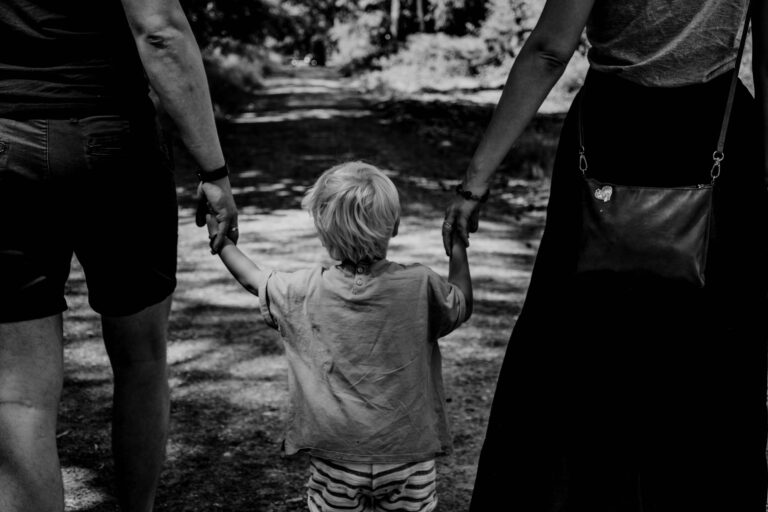The Dark Truth Behind Autism’s ‘Superpower’ Myth

Table of Contents
Let’s be vulnerable.
When people talk about autism, they often paint two very different pictures. Some say, “Autism is a superpower, it’s cool, it makes people unique.” And then there’s the other side—the one rarely spoken out loud because it’s too heavy, too raw, too crushing. That’s the truth behind autism that most people don’t want to hear: parents quietly drowning under lifelong stress, grief, and exhaustion.
The truth is, the autism spectrum is not one neat definition. It stretches so wide that one child may grow into independence while another may need full-time care for the rest of their life. Parents live this reality every single day, and it doesn’t end when their child turns 18. It doesn’t end when they’re too tired to keep going. It doesn’t end at all. And that’s where the misery creeps in—the realization that this is forever.
The Silent, Unspoken Pain
Psychologically, raising an autistic child can eat parents alive from the inside out. Every morning starts with a knot in the stomach, not knowing if today will be calm or catastrophic. Every night ends with a deep, aching exhaustion that never really goes away. Parents live in a world of constant hopes and crashes. One day, their child may say a new word, make eye contact, or seem calmer. Hope fills their chest. The next day, everything collapses in violent tantrums, silence, or regression. The emotional whiplash is unbearable.
And over time, that cycle takes a dark toll. Parents begin to fear hope itself, because every ounce of hope carries the risk of an even harder crash. Depression sets in, sometimes quietly, sometimes in waves of despair. Suicidal thoughts are not rare in this world. They creep into the minds of parents who are consumed by the weight of never-ending caregiving, endless worry, and the knowledge that they cannot ever escape. This is another part of the truth behind autism that no one wants to acknowledge.
The grief is indescribable. It’s grief for the life they thought their child would have. Grief for the family life they imagined before diagnosis. Grief that doesn’t fade—it just becomes another layer of stress they carry every single day. This hidden grief is the truth behind autism for so many parents.
The Brutal Physical Reality
The body breaks down under this kind of stress. Sleepless nights stretch into years. Children may wake up screaming, roam the house all night, or need constant attention to keep from hurting themselves. Parents can’t remember what it feels like to sleep more than a few hours at a time.
Then there’s the chaos inside the home. Walls smeared with poop. Broken dishes and shattered glass. Endless cleaning up after tantrums that leave the house wrecked. Being bitten, scratched, or hit by the very child they love. Parents endure bruises, sprains, and scars that tell the story of battles fought inside their own living rooms. This harsh physical toll is yet another truth behind autism that society refuses to face.
And the most painful part? They do all this in silence. Because to say it out loud feels like betrayal. Because no one wants to hear about the ugliness. Because society only wants to talk about “quirky geniuses” and “hidden talents,” not the raw violence and exhaustion of autism at its most severe.
The Spectrum Is Too Broad to Sugarcoat
Autism is not one story. It’s not one child. It’s a spectrum so wide that it makes no sense to reduce it to slogans like “autism is a superpower.” For some, autism means creativity, different thinking, and unique strengths. But for others, it means a life of suffering—for the child and for the parents. That is the truth behind autism—it’s not the same for everyone, and pretending it is causes harm.
Parents know this truth intimately. They know that their child may never speak. They know that their child may never live independently. They know that when they are old and weak, their child will still need them—perhaps violently, perhaps desperately, but always fully.
And in their quietest, darkest moments, parents whisper to themselves: What will happen to my child when I’m gone? Who will carry this burden then? That fear never leaves. It lingers like a shadow over every day, every sleepless night, every broken moment. It’s part of the truth behind autism that keeps parents awake at night.
Searching for Options in a World That Doesn’t Understand
Parents try to find a way forward, but the options are never enough.
Residential Facilities:
For families with children who are aggressive or need constant supervision, residential facilities are often the last hope. These homes provide structure, staff, and care—but parents wrestle with guilt that cuts like a knife. They feel like they’ve abandoned their child, even when it’s the only way anyone in the family can survive. The truth behind autism is that sometimes, love means stepping back so others can help.
Care Centers and Programs:
Day programs, therapy centers, and specialized schools can give families short breaks and much-needed support. But they’re not always accessible. Waiting lists stretch endlessly. Costs are staggering. And parents live with the anxiety of knowing programs can be taken away with a single budget cut.
Coping Tools—Even Controversial Ones:
In desperation, some parents turn to THC gummies, CBD oil, or other unconventional options. Sometimes it helps—easing aggression, calming anxiety, or helping a child sleep. Sometimes it doesn’t. But desperate parents will try anything to soothe the storm, even if it means facing judgment from others who don’t understand.
Community and Support:
Support groups—when parents can find the strength to join them—become lifelines. Not because they fix anything, but because hearing “me too” can be the only thing that keeps someone from collapsing entirely. Organizations like The Arc, which supports families of people with lifelong disabilities, can also connect parents with advocacy, services, and community when they feel completely alone. And for families still navigating those first overwhelming steps after diagnosis, resources on connecting your child to services can make the path feel a little less isolating.
The Lifelong Weight
This is the truth behind autism that no one likes to say: it doesn’t end. There’s no graduation, no cure, no finish line where parents can finally rest. It is lifelong stress that never lets up. It is exhaustion that seeps into the bones and grief that never fully heals.
And yet, parents keep going. Not because they are strong, but because they have no other choice. They keep going through misery, through hopelessness, through fear that consumes them. They keep going even when their bodies ache and their hearts are broken. They keep going because, despite everything, they love their child.
But let’s be honest. That love doesn’t erase the burden. That love doesn’t make the exhaustion easier. That love doesn’t stop the despair. Both can exist at the same time—love and misery, devotion and despair, hope and hopelessness.
This is the truth behind autism for countless families. Not a superpower. Not a slogan. But a lifelong battle that eats at the soul, the body, and the spirit. And parents, the quiet soldiers in this war, deserve for that truth to finally be spoken out loud.

